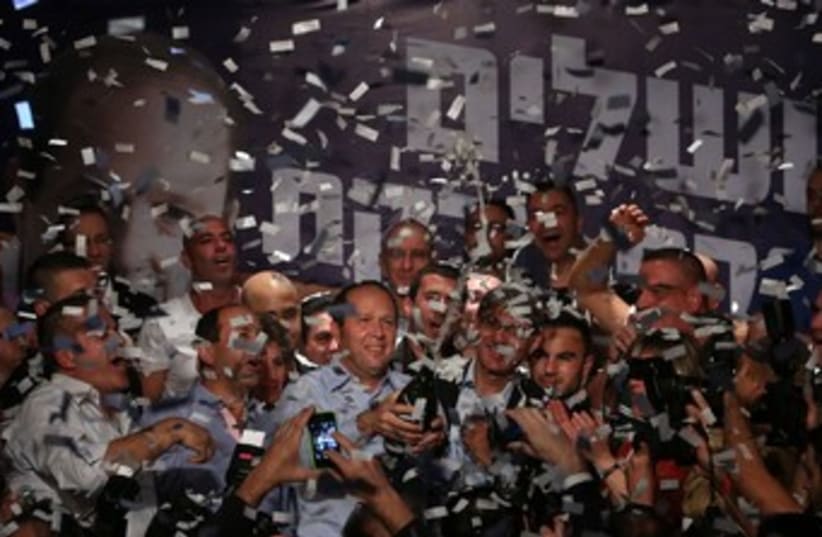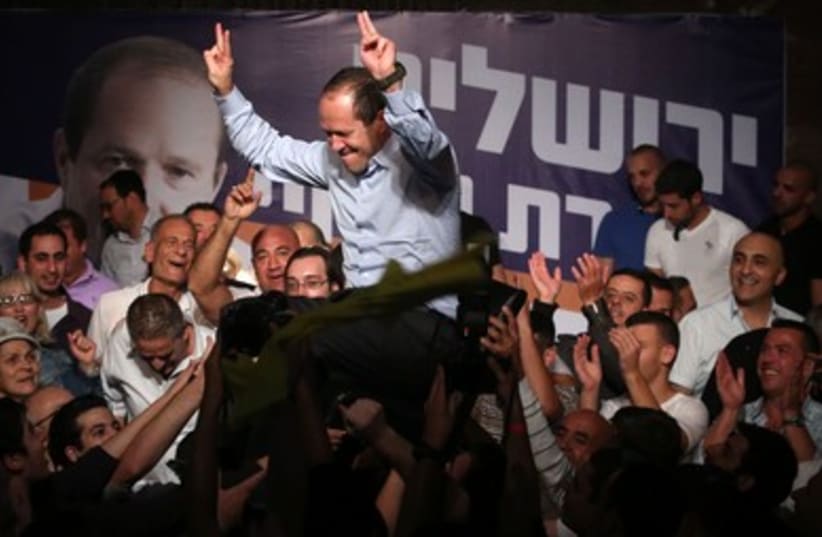
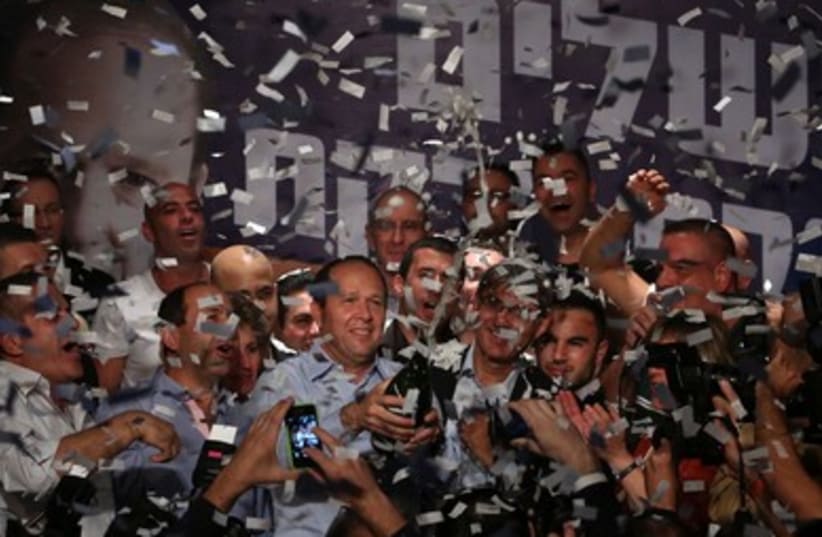
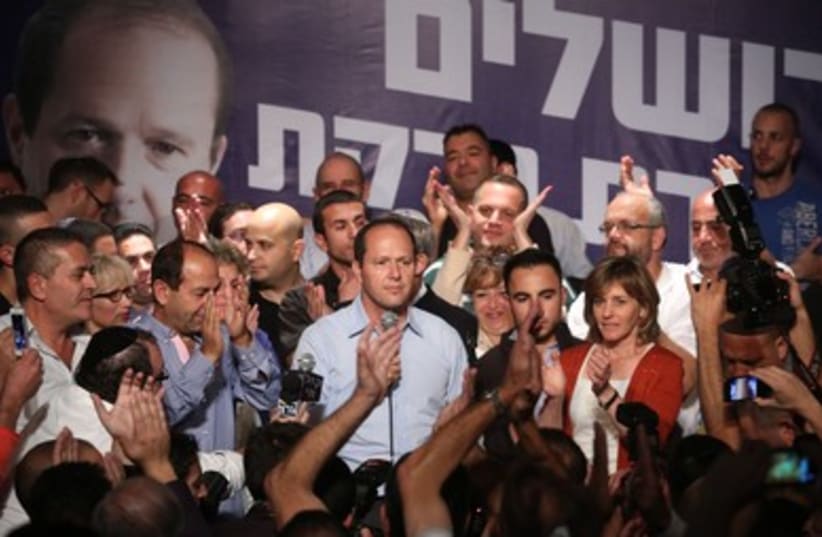
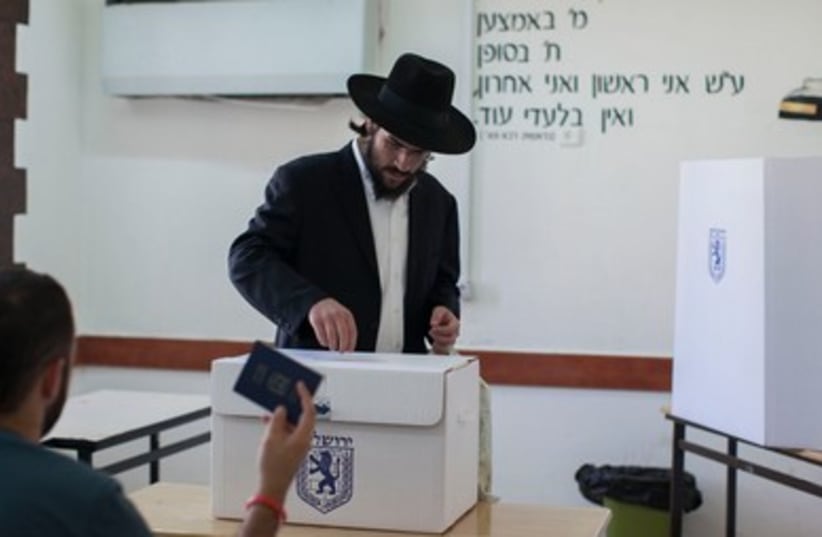
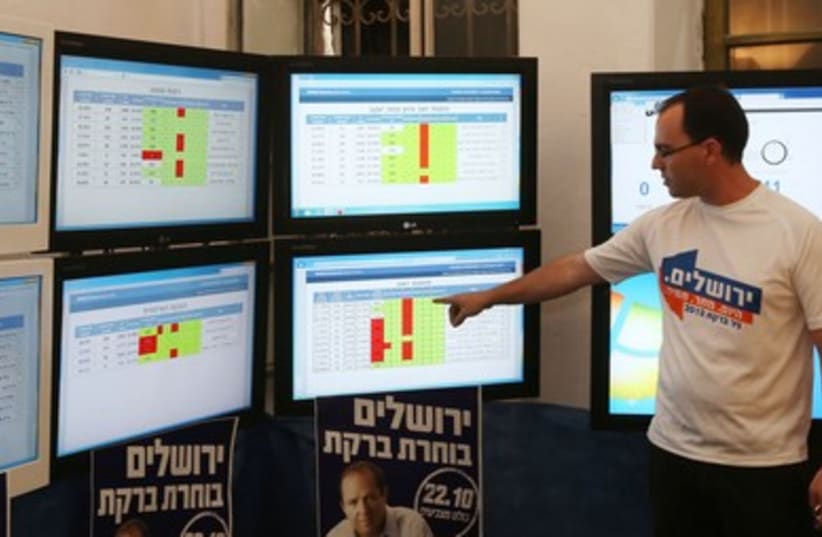
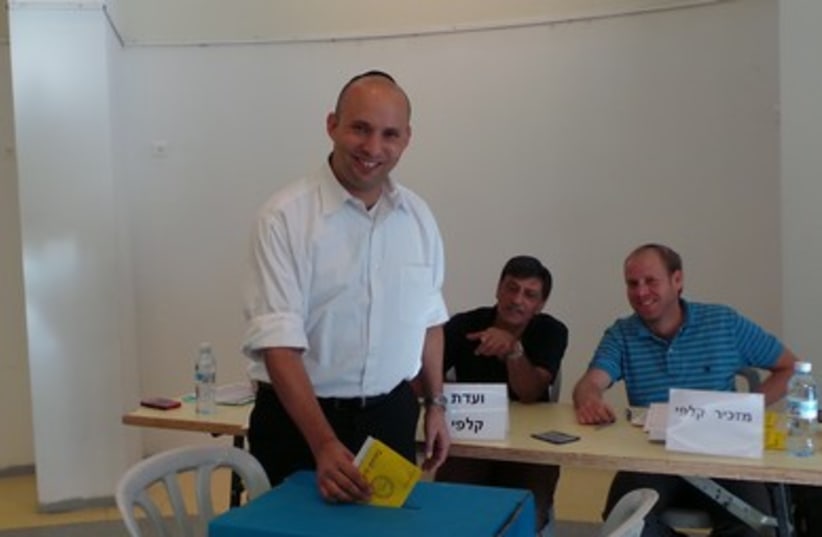
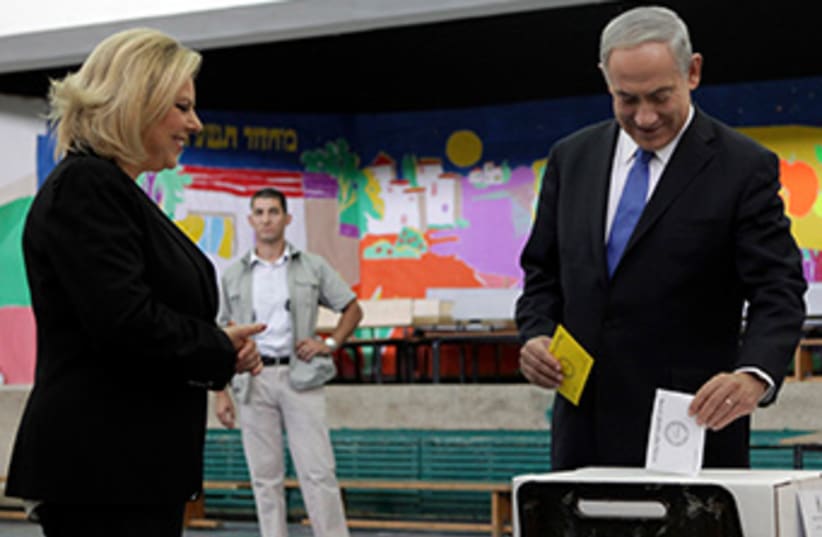
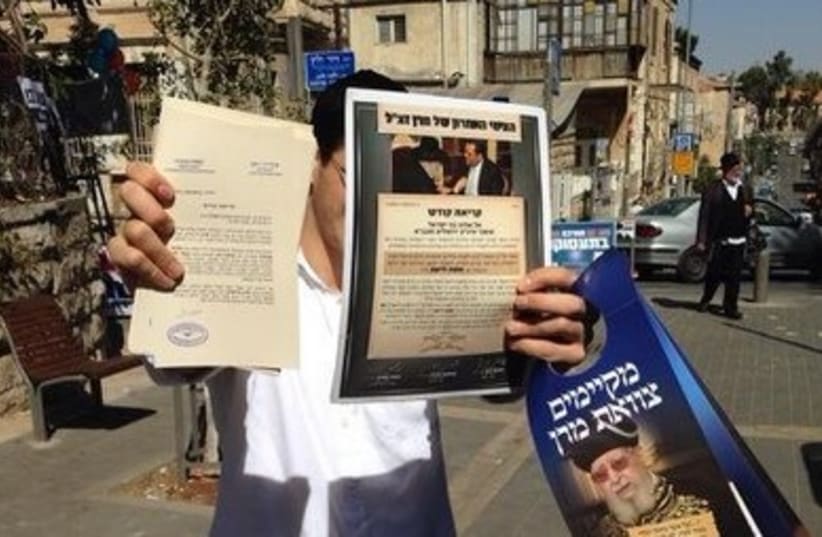
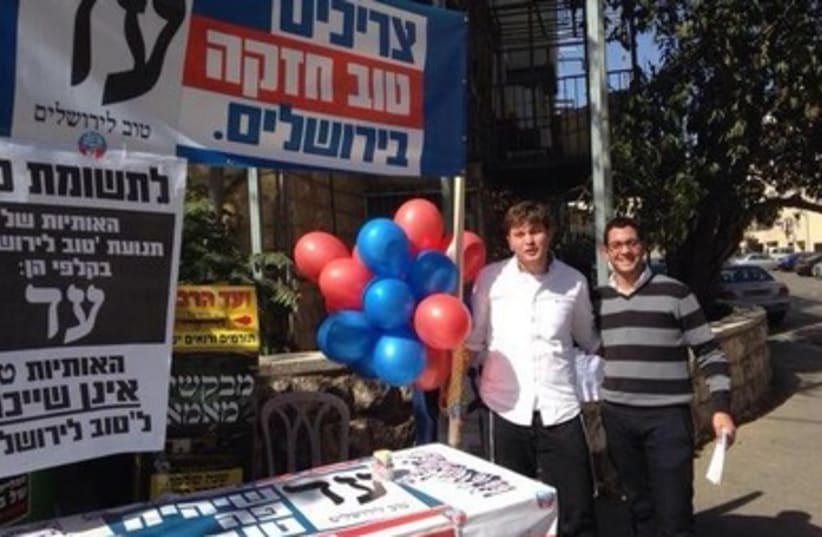
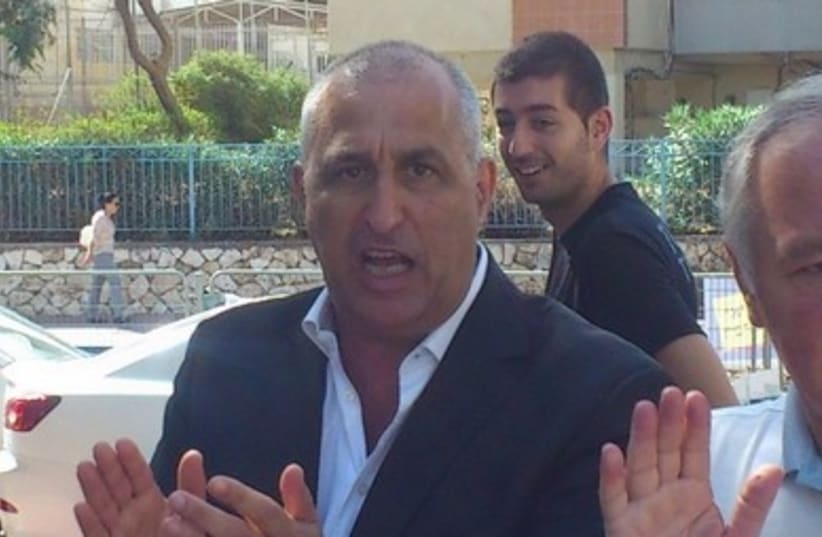
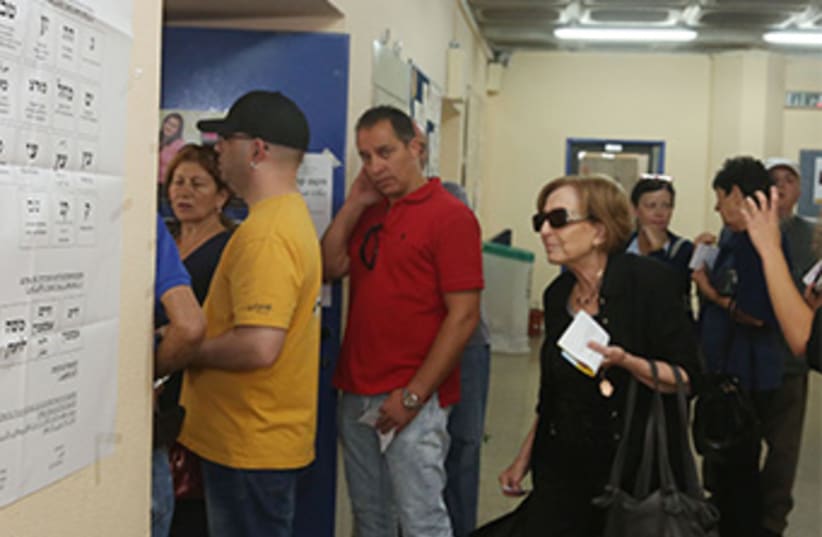
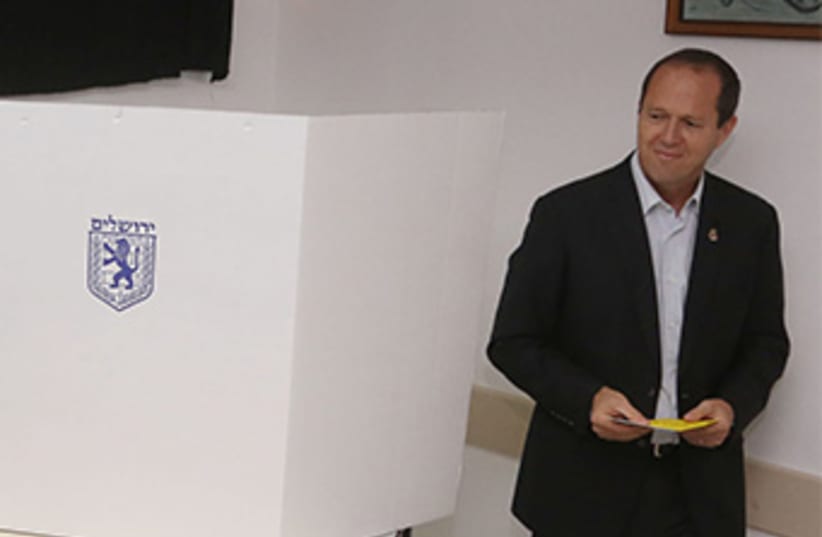
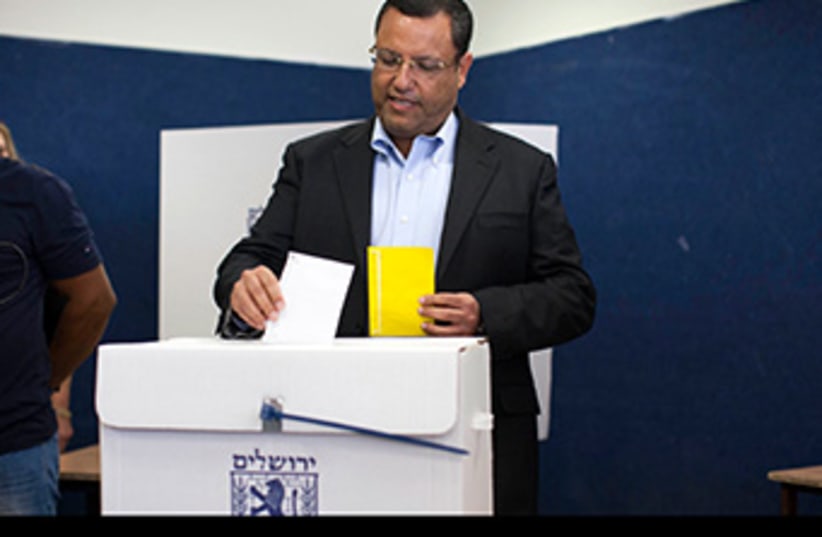
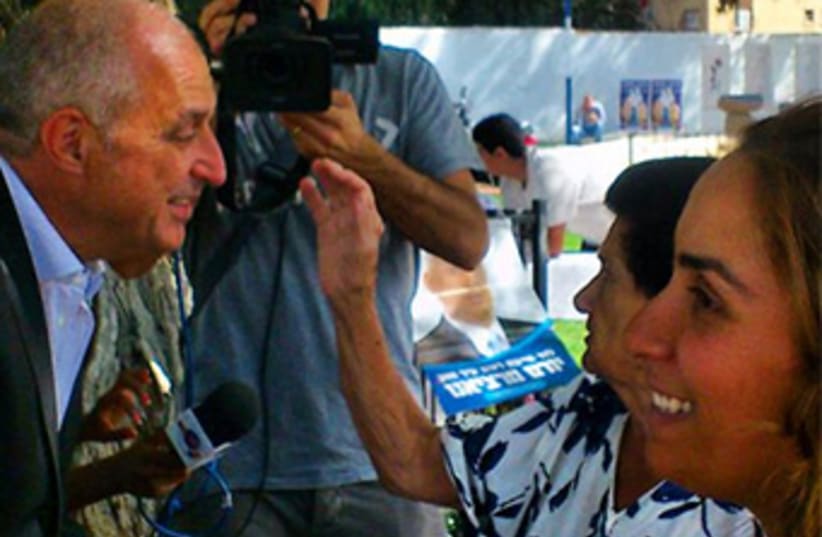

Even in the tight Jerusalem race, Mayor Nir Barkat came out on top, beating Likud Beytenu candidate Moshe Lion by 5.8 percent.Ron Huldai remained mayor of Tel Aviv with 53% of the vote, Yona Yahav was reelected by 49% of Haifa voters, Rubik Danilovich remained in Beersheba’s City Hall by a landslide with 92.2% of the vote, and Rishon Lezion Mayor Dov Zur kept his seat with 70% of the vote.The dramatic Beit Shemesh race also ended with Mayor Moshe Abutbul of Shas remaining in place with 51.9% support.Three mayors whom the High Court of Justice recently removed from office – Shlomo Lahiani of Bat Yam, Shimon Gapso of Upper Nazareth and Yitzhak Rochberger of Ramat Hasharon – were voted back into their jobs as well. However, they may not remain there for long, since the Movement for Quality Government immediately filed complaints against them to the courts Wednesday morning.Even Ra’anana’s new mayor, Ze’ev Bielski, is actually an old mayor, having led the town from 1989 to 2005. He defeated Nahum Hofri, who was running for reelection, with over 70% of the vote.The low voter turnout rate on Tuesday – less than half of eligible voters went to the polls – led Interior Minister Gideon Sa’ar to suggest that the next municipal election day be a day off from work.MK Meir Sheetrit (Hatnua), a former interior minister, took the idea one step further and said in a speech to the Knesset on Tuesday that not only should municipal election day be a day off, anyone who doesn’t vote should have to pay a fine.Meanwhile, political parties competed over who was most victorious, sending out optimistic messages.Most of the Likud’s mayors remained in power, and the ruling party’s new candidates – Yair Revivo in Lod, Binyamin Biton in Dimona and Itzik Danino in Ofakim – won races in their cities, leading a party spokeswoman to call the Likud “the strongest in local government.”Bayit Yehudi touted wins in Kiryat Malachi and Sderot – where joint Likud-Labor-Bayit Yehudi candidate Alon Davidi got 57.8% of the vote – as well as Revivo’s win in Lod, since Bayit Yehudi had backed him.However, the party suffered losses in mayoral races in Tirat Hacarmel, Acre and other places. In addition, a list that broke off from Bayit Yehudi in Jerusalem did better than the party’s official list.Economy and Trade Minister Naftali Bennett’s party had invested heavily in the municipal elections as part of a strategy to establish Bayit Yehudi as a major party.“Bayit Yehudi reached the periphery, and the periphery came to Bayit Yehudi. This is another victory for us; we became Israel’s social party,” Bennett said.Labor also boasted 20 victories, though many of the mayors it claimed as its own did not actually run under the party’s name.Yesh Atid only had one major victory, with Tzvika Gendelman elected mayor of Hadera.Meanwhile, Shas leader Arye Deri licked his wounds on Wednesday, with a party spokesman focusing on victories in city councils rather than on the fact that only Shas mayors up for reelection had won and that the new candidates Deri had chosen had lost.“Israeli citizens’ amazing faith in Shas requires our representatives to continue acting for their benefit,” Deri said.Benji Rosen contributed to this report.
